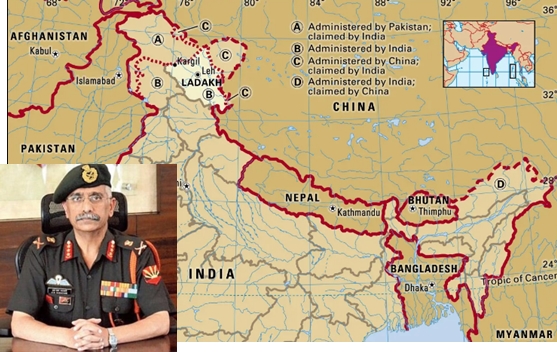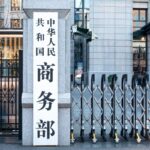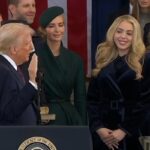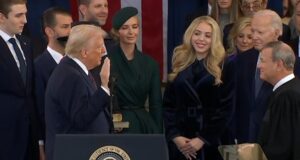
People can kid themselves for a long time. Maybe China didn’t mean it. Maybe it only seems to be stirring up trouble. Maybe the Chinese soldiers got confused about where the border lies. Maybe Chinese Dictator Xi Jingping didn’t get the memo about not plundering and setting up shop in the exclusive economic zones of other countries. Maybe China is having a bad day.
But eventually, if there’s anybody with common sense and self-respect leading the policymakers of a targeted country, it becomes harder and harder to disregard the Chinese government’s long train of abuses and usurpations, which seem to invariably pursue the same object of enlarging its own territory and resources at the expense of the territory and resources of other countries.
General Manoj Naravane (shown above), former chief of India’s Army Staff, says that India’s moment of truth occurred in 2020. It was then that a border clash “in the country’s Ladakh region exposed China as a serious threat” (Newsweek, February 13, 2024).
“What has happened is not a bad thing. Because for a very long time, we were shying away from calling out China as the [number one] threat,” Naravane said Saturday, speaking at the WordsCount literary festival held at Mayo College in the Indian city of Ajmer.
The former army chief’s comments come as India insists on restoring the status quo that had existed at the border with China in Ladakh before April 2020. Beijing moved a large group of People’s Liberation Army soldiers to the border between April and June 2020, initiating the ongoing stand-off between China and India.
A violent skirmish in June of that year involving Indian and Chinese patrols in a Himalayan ravine was the first deadly clash along the disputed border in nearly half a century. Twenty Indian troops and at least four Chinese soldiers died.
An indefinite and expensive standoff—an estimated 100,000 Indian troops, more or less, remain deployed in the Ladakh region—is better than kidding oneself about China’s unending demands and in effect to accede to them and encourage more of the same.
“We were always hoping that by being decent and conciliatory and agreeing to what they are saying, [the Chinese government] would return that favor in full measure and also give us the respect that is due,” Naravane says. “So obviously that was not coming. As a result of activities of 2020, we are more focused now on where the threat actually lies.”











